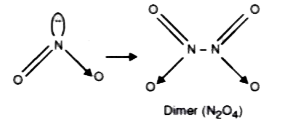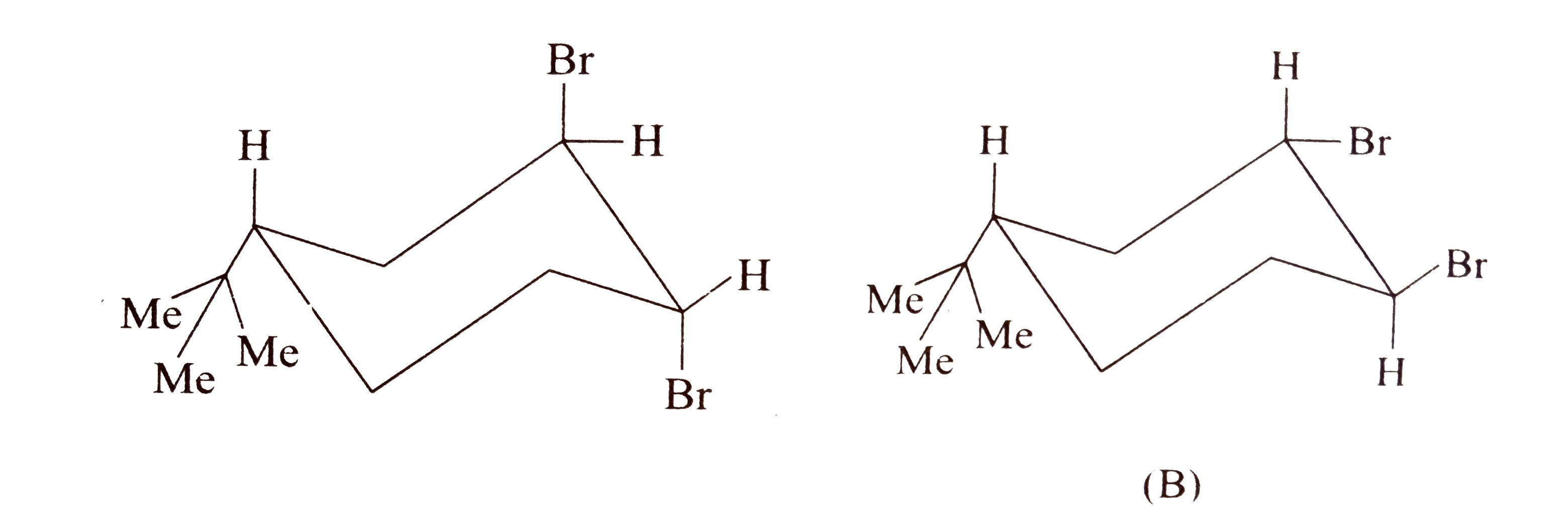NO2 readily forms a dimer. Explain.
NO2 is unstable due to the presence of one unpaired electron. Therefore, it dimerises to form a stable compound.

Topper's Solved these Questions
- P-BLOCK ELEMENTSBOOK - KALYANI PUBLICATIONCHAPTER - P-BLOCK ELEMENTSEXERCISE - ISC EXAMINATION QUESTIONS(PART-I)(OBJECTIVE QUESTIONS)(FILL IN THE BLANKS)
6 Videos
- P-BLOCK ELEMENTSBOOK - KALYANI PUBLICATIONCHAPTER - P-BLOCK ELEMENTSEXERCISE - ISC EXAMINATION QUESTIONS(PART-I)(OBJECTIVE QUESTIONS)(THE CORRECT ALTERNATIVE FROM THE CHOICES GIVEN :)
6 Videos
- P-BLOCK ELEMENTSBOOK - KALYANI PUBLICATIONCHAPTER - P-BLOCK ELEMENTSEXERCISE - EXERCISE (PART-I)(MATCH THE FOLLOWING)
1 Video
- ORGANIC COMPOUNDS CONTAINING NITROGENBOOK - KALYANI PUBLICATIONCHAPTER - ORGANIC COMPOUNDS CONTAINING NITROGENEXERCISE - EXERCISE (PART-II DESCRIPTIVE QUESTIONS- LONG ANSWER QUESTIONS )
12 Videos
- POLYMERS BOOK - KALYANI PUBLICATIONCHAPTER - POLYMERS EXERCISE - EXERCISE (PART-II (DESCRIPTIVE QUESTIONS )) ( SHORT ANSWER QUESTIONS
5 Videos
Similar Questions
Account for the following :
(i) Oxygen does not show an oxidation state of + 4 and + 6 like sulfur .
(ii) NO2 readily forms a dimer.
(iii) Fluorine always exhibits and oxidation state of -1 only in its compunds
View SolutionExplain the following :
(a) NO2 readily forms a dimer.
(b) BiCI3 is more stable than BiCI5.
View Solution
Knowledge Check
Aluminium (III) chloride forms a dimer because aluminium
Acannot form a trimerBhas high ionisation energyCbelongs to third groupDcan have higher coordination number.Aluminium (III) chloride forms a dimer because aluminium
ABelongs to 3rd groupBCan have higher coordination numberCCannot form a trimerDHas high ionization energy
Explain the following :
(a) NO2 readily forms a dimer.
(b) BiCI3 is more stable than BiCI5.
View SolutionBF3 exists as discrete molecules but BH3 exists as dimer. Explain .
View SolutionSodium readily formsNa+ion but never forms Na2+ ion. Explain.
View SolutionExplain that (A) readily forms an alkene with Ic− but (B) does not.

View SolutionExplain that (A) readily forms an alkene with Ic− but (B) does not.

View SolutionNO2 forms dimer but ClO2 does not why?
View Solution
